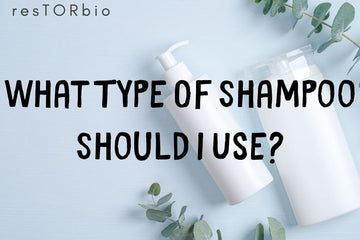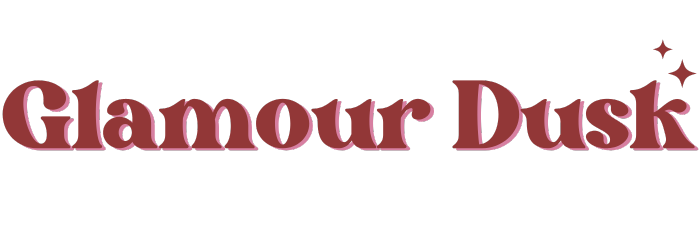
Shampoo is a type of soap used to clean the hair and scalp. There are many different types of shampoo, and each one is designed for a specific kind of hair.
When using shampoo, the critical thing to remember is to make sure you have a quality product. If you are not sure "what type of shampoo should I use?", read our article on that. After reading that article, you will have a good idea of what to look for when you go shopping for shampoo.
Types of Shampoos
1. Regular Shampoo
Regular hair shampoos are for those who don't have specific hair care needs. Regular shampoos have simple ingredients that clean average sebum production. They do not strip your scalp's natural oils, hydration, or shine. Regular shampoos are available for normal, dry, and oily hair.
2. Everyday Shampoo
Gender-strengthening gals with longer hair need to shampoo less often. That's why everyday shampoo is so helpful. A mild shampoo that contains fewer ingredients than regular shampoos is simple.
They are also soap- and alkaline-free, making them more sustainable for daily use. Everyday shampoos can have a few conditioning agents, just like regular shampoos.
3. Clarifying Shampoo
Clarifying shampoo is recommended if you are using a lot of styling products. It deep cleans the hair and scalp, removing styling products and silicones buildup.
Clarifying shampoos can be very harsh, so make sure you use them once a week. Clarifying shampoos are safe to use. However, it can cause hair frizz and dryness.
4. Anti-breakage Shampoo
Anti-breakage shampoos can be used for long hair or have been damaged. They are gentle on hair and give it a shiny shine. They restore hair's pH balance and repair any damage. Anti-breakage shampoos can be used to reduce frizz and make your hair healthier and more robust.

5. Purifying Shampoo
Purifying shampoos are more focused on the scalp and not the hair. They have soothing, cleansing, and antimicrobial properties. Purifying shampoos are designed to target hair with dandruff.
These shampoos contain common botanical ingredients such as tea tree oil, willow bark extract, dandelion, and willow bark extract.
6. Dry Shampoo
Dry shampoo is technically not a shampoo. It absorbs oils from the hair and scalp. Dry shampoos come in various forms: liquid, powdered, or aerosol sprays. Use a small amount to spread dry shampoo over your roots to absorb any oil or grease for those between wash days.
The shampoo will immediately absorb excess sebum from the sources and make your hair look and smell better. It is important to remember that dry shampoo can build up and cause adverse effects on your hair and scalp.
7. Moisturize Shampoo
Lack of moisture on the scalp is one of the significant reasons for weak or dry hair. The scalp may not produce enough oil to retain water, leading to dry and brittle hair. Use a moisturizing shampoo to combat this. You don't need to have dry hair to benefit from moisturizing shampoo.
A moisturizing shampoo can help strengthen and make your hair look shinier. We don't recommend moisturizing your hair if you have oily or damaged hair.
8. Volumizing Shampoo
As the name implies, Volumizing shampoos are made to add volume to thin, fine hair. These shampoos are lighter in the formula to not weigh down your hair. A volumizing shampoo opens the hair cuticle and encourages growth. Volume shampoos may contain keratin protein, which helps strengthen the hair from the roots to the ends.
9. Shampoo For Color-treated Hair
Color-treated hair will likely have dry, fading, or lackluster hair. It's essential to use a shampoo specifically made for color-treated ones.

A shampoo specifically made for color-treated hair doesn't strip hair of its natural hue, unlike other shampoos. This ensures that your hair is healthy and hydrated.
10. Shampoo For Curly Hair
You probably know that not all shampoos are made equal for curly hair. Hair with curly ends tends to be dryer and more frizzy than other types. This is why super-hydrating shampoos are so important. Shampoo for curly hair gently cleanses frizzy hair and makes it shiny and smooth.
Which shampoo is best for you? This is the easiest way to determine if your scalp is in good condition.
Define Your Scalp Type
"What is the best shampoo?" Beauty junkies often ask this question. Healthy hair begins with what you apply to it.
Although shampoo is often thought of as a hair cleanser, it's essential to consider your scalp when selecting a shampoo. Reslan says that shampoos have different cleansing abilities. It's therefore vital to know what type of scalp you have before choosing a shampoo.
The shampoo is designed to clean your roots more than any other area of your hair. If you have oily roots, you might need a deeper cleansing shampoo that's moisturizing. On the other hand, if your scalp is more dry or tight, you will need more moisturizing.

Here are some ways to determine your scalp type.
St. Surin Lord says that a tight or itchy scalp after washing or just by itself is a sign that you might have a dry scalp. A shiny scalp may appear more radiant, while flakes can form clumped together in someone with an oily scalp.
A combination scalp is hair that's neither oily nor dry. If your scalp becomes oily within two to three days of shampooing, you will know it is a combination.
If that's you, consider yourself lucky.
Consider it this way: Shampoo is for your roots and scalp, while the conditioner is for your ends. It would help if you avoided shampoos too oily for your scalp or dry your ends (a common combination). Instead, choose a suitable shampoo for oily hair and then apply the conditioner to your ends.
Tip
- Oil is absorbed by the scalp's sebaceous glands, which bathe the hair shaft with grease. If you have oily hair, you likely have an oily scalp.
Shampoos to Oily Scalps
You've probably tried dozens of shampoos and failed to find the right one for you if your scalp is oily or greasy. You have tried every possible shampoo, from washing your hair daily to waiting days between shampoos to reduce oil production and excess sebum. These are the things to watch out for when selecting a shampoo to treat oily scalp.

- Avoid shampoos with hydrating, moisturizing, or soothing properties. These shampoos can add too much moisture and oil to an already oily scalp.
- Look out for labels that say volumizing, strengthening, or balancing. These products are not moisturizing and are more effective in removing excess oil.
- Clarifying shampoos can be very helpful for extremely oily scalp conditions. However, it is essential not to overuse them and dry out the scalp.
- The double shampoo is a good idea. It is similar to double-cleansing your skin. It involves washing your hair with two different shampoos to address other needs. You can use one shampoo to treat your oily scalp and another to wash your hair below the roots.
- To break up oils, spend extra time combing the shampoo into your hair. Rinse your hair well.
- Avoid rubbing conditioner into your scalp after shampooing. Concentrate on the ends and mid-shaft of your hair instead. Rinse thoroughly.
Shampoos to Dry Scalps
The best shampoo for dry scalps is the first line of defense against itchy and flaky conditions. Dry scalps can be challenging to treat with shampoos that are not drying. These are some tips to help you get started:
- Avoid shampoos that are strengthening, fortifying, or volumizing. These products can dry your hair and strip it of the necessary moisture.
- Shampoo labels that promote moisture, hydration, and smoothing are best for scalps that are not too dry. These shampoos can help dry scalps by retaining water.
- Avoid shampoos containing sulfates. They can cause hair and scalp damage.
- Shampoo your hair even if your scalp isn't dry for best results.
Tip
- Shampoos specially formulated for dry hair may be a good option if your scalp is dehydrated, itchy or flaky. Moisturizers may include tea tree oil and menthol.
Shampoos Based On Hair Type

- Fine hair: Choose volumizing shampoos for fine hair that will not weigh down your hair.
- Thick hair: For thick hair, moisturizing shampoos can add moisture and shine.
- Straight hair: These shampoos have extra moisturizers and a smoothing agent that help seal the cuticle. They are great for smooth and refined styles.
- Wavy hair: Balancing shampoos can be an excellent middle-of-the-road option. They are not drying, but they will moisturize your hair.
- Curly hair: Use moisturizing shampoos with ingredients that reduce frizz and don't weigh down your curls.
- Damaged/Colored/Brittle Hair: Strengthening or fortifying shampoos are suitable for damaged, over-processed, highlighted, weakened, or brittle hair, as they usually contain extra protein meant to improve hair's condition.
There are Other Factors to Consider
Healthy hair is defined by shine and bounce. Bouncy hair is a sign of elasticity. St. Surin Lord says that if your hair lacks bounce, it is likely that your hair is not well-moisturized.
She says that hair should not be weighed down with silicones or heavy ointments to be elastic and bouncy. A humectant like glycerin can draw in moisture, and it's excellent for dry scalp. Because it is lightweight and moisturizing, mango seed oil is another ingredient you should be looking out for.

Sunflower seed oil's ceramides, fatty acids, and other ingredients can help repair hair, moisturize it, reduce frizz, and add shine.
How to deal with dandruff Reslan states that an oily or flaky scalp usually causes dandruff. She suggests that gentle shampooing, cleansing shampoos, and diet can help.
She recommends that anyone experiencing a scalp imbalance and has not changed their environment, products, or diet consult their doctor to ensure that the problem is not internal.
Are you struggling to know what type of product is right for you? Read our article: Best Shampoo And Conditioner
Conclusion
When looking for the best shampoo, you will have to determine what type of hair you have and what type of shampoo is best for your hair. The critical thing to remember is that you should look for a shampoo designed specifically for your hair type.
There are several different types of shampoo, and many of them will do the same thing. Before you purchase, you should do some research to find the best one for your hair.
Video




